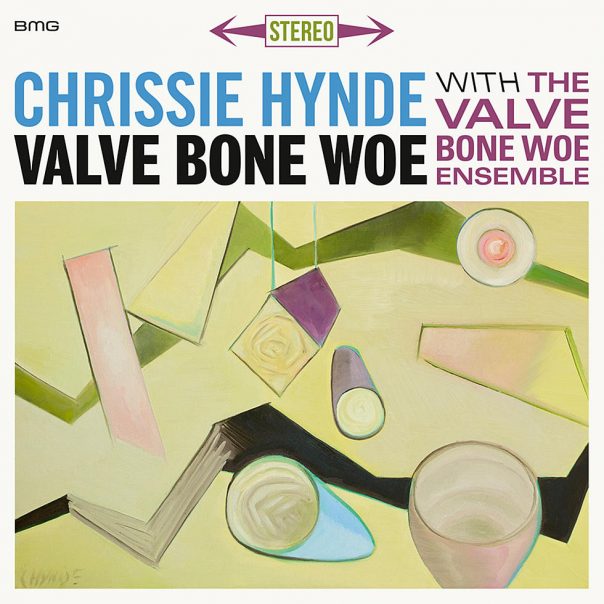Chrissie Hynde plays Sinatra, Coltrane and a former beau on new jazz record

Chrissie Hynde, “Valve Bone Woe.”
Can you imagine outspoken all-time great rocker and Pretenders leader Chrissie Hynde, buddy of the Sex Pistols, in a smoke-filled room, wearing a low-slung, sparkly tassled dress and a headband, crooning jazz?
Valve Bone Woe
Chrissie Hynde
BMG Records, Sept. 6
Maybe not before you hear it.
But now? Count me convinced. Hynde’s new solo record, Valve Bone Woe, is a real gift to her fans, and to herself. It’s definitely good for her voice. She has always been an underrated, if not great, singer. Letting one of rock’s coolest voices loose into the surprisingly natural context of 20th Century standards makes it shine.
Valve Bone Woe is a covers record comfortably wrapped in a warm blanket of jazz, performed by Chrissie Hynde and her Valve Bone Woe Ensemble. The backing band’s name comes from Hynde’s brother, saxophonist Terry Hynde—whose reaction to his sister telling him valve-trombonist Bob Brookmeyer died was to say, “Valve Bone Woe.”
Though she now dips into standards by the likes of Frank Sinatra, John Coltrane, Charles Mingus and Barbra Streisand, Chrissie Hynde has said she’s not “hugely interested in branching out into other musical genres.” But she grew up with jazz.
“I often bemoan what I regard as a decline in melody in popular music, and I wanted to sing melodies,” she said in a press statement.
With stage and screen producers-composers Marius de Vries and Eldad Guetta, who collaborated on La La Land, Chrissie Hynde calls Valve Bone Woe a “jazz/dub” album—with somewhat lighter additions from the Kinks and Nick Drake.
Right. Those Kinks; the ones led by Ray Davies, with whom she had a daughter in 1983. Her version of the Kinks “No Return” features a Bossa Nova flavor and more textured vocals.
Hynde publicly praised Karen Carpenter back in the 1980s, when the Carpenters’ mom-and-pop style wasn’t exactly the standard of coolness. This record allows her to show why. Given the right musical context, it’s wonderful hearing shades of Carpenters’ rich timbre in Chrissie Hynde’s voice on the gorgeously melancholy versions of “Absent Minded Me” from Funny Girl and Drake’s “River Man.”
Hynde obviously thrives on the space of jazz, not just for her own voice but for the songs themselves. She vocally probes fresh arrangements without changing too much, while her band also shows a great dynamism and restraint of its own.
She sets the cool bar high right out of the gate on “How Glad I Am,” best known as a Nancy Wilson song. A version of Brian Wilson’s “Caroline, No” wanders a bit, with a loose arrangement helping her make it mostly her own.
Sinatra’s “I’m a Fool to Want You” may be the album’s best song, with Hynde’s patient, moody phrasing propelling big strings and accented by a wandering horn. No one is in any hurry, as shown on Hoagy Carmichael’s “I Get Along Without You Very Well (Except Sometimes).” That standard also benefits from her deliberate pace, letting the vibe lead her voice.
Chrissie Hynde is along for the ride on a summary version of Charles Mingus’ “Meditation on a Pair of Wire Cutters.” She condenses the song into a Tom-Waits-like piece, with a clanky percussion-fueled groove. She brightens somewhat for the pleasant “Once I Loved,” during which—like a good conversationalist—she gives her band space. She parses words just enough to let someone else have their say. The same goes for “Wild is the Wind,” originally popularized by Nina Simone and later recorded by David Bowie. Hynde’s vocal approach is wonderfully natural in the arrangement.
Rock singers often try too hard to fit into new surroundings when straying outside their musical box. This often ends up sounding overworked and treading stylistic water. Hynde pulls it off with Valve Bone Woe, thanks to a finely honed musical sense and a strong sense of simple cool—the strongest common element of rock and jazz. She could teach a master’s class in cool.
